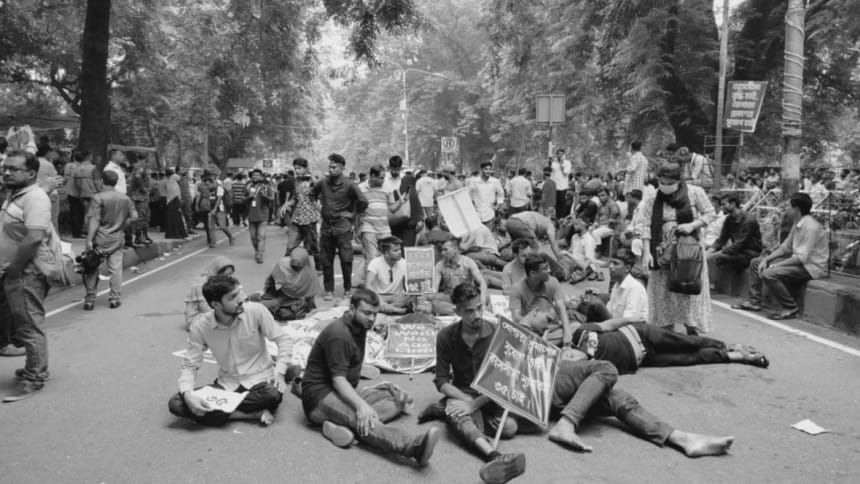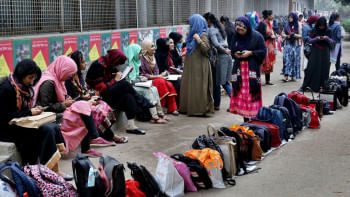Rethinking age limits: Creating an inclusive workforce for Bangladesh

In Bangladesh, the age limit for applying to government jobs has been extended to 32. However, in response to widespread demand for broader access to government employment, the government is now considering raising this limit to 35 for men and 37 for women. This potential policy shift is a commendable step toward fostering a more inclusive workforce, although it has simultaneously sparked discussions on whether the age limit should be set uniformly at 35 for all candidates, regardless of gender.
Global perspectives on age limits in jobs
Examining global practices can give us valuable context on the issue. In developed nations like the United States and the United Kingdom, there are no age limits for most government jobs. Individuals, both men and women, are free to pursue public service careers well into their later years, with emphasis placed on experience, expertise, and merit rather than age.
Closer to home, progressive policies in countries like India and Sri Lanka allow for extended age limits, particularly for women and underrepresented groups, acknowledging the unique challenges some candidates may face. In contrast, the private sector generally imposes no age restrictions at all, emphasising the need to prioritise skills and experience over age.
The biological clock: Another challenge to women's careers
It is well-known that the biological clock plays a significant role in shaping women's personal and professional lives. Many women face the dual pressures of career advancement and family planning in their thirties, a time when men typically encounter fewer interruptions. This reality often limits women's ability to focus fully on their careers during what are considered their peak working years.
Raising the age limit to 37 would provide a fairer window of opportunity for women who need to prioritise family commitments earlier in life but still have the desire and potential to serve in government roles later. It is not just about extending time—it is about recognising the structural inequalities women face and making a genuine effort to level the playing field.
Life commitments and career timing
Many people face personal responsibilities that can have an effect on when they enter or reenter the workforce. Caring for ill family members, raising children as single parents, facing financial struggles, or dealing with personal health issues can delay career ambitions. Under the current age restrictions, such individuals may be disqualified from government jobs despite having the necessary qualifications and merit.
Those who find themselves excluded from government job opportunities and also jobs in the private sector owing to the same age requirements often have limited alternatives. They may attempt to start their own business or leave the country in search of better prospects, often leaving their families behind. Both paths require financial resources, which many people do not have. Those who find themselves unable to pursue any options may feel helpless, driving them to struggle with their mental health.
Increasing the age limit for government positions would be a step toward addressing Bangladesh's unemployment problem, as it would create opportunities for those who had to prioritise other responsibilities earlier in life. This policy shift would enable qualified individuals to pursue meaningful careers in public service, regardless of life circumstances that may have delayed their entry into the job market.
Toward age flexibility in non-government jobs
In Bangladesh, the age limits in government roles often set the standard for private sector hiring practices, with many employers adopting similar criteria. Currently, the age limit for non-government jobs is often set at 30, mirroring the restrictions for government positions. By maintaining such rigid age limits, companies miss out on qualified individuals who may have the right expertise and skills but are excluded based solely on age. Job seekers with the necessary qualifications are unfairly denied opportunities.
Maintaining these age restrictions benefits no one—neither employers nor employees. Non-government jobs should, therefore, be free from age limits, allowing companies to focus on talent and capability rather than arbitrary cutoffs. Removing such restrictions would foster a more inclusive and dynamic workforce where expertise and potential take precedence.
A step toward a resilient workforce
After examining global practices and considering the challenges many people face, the government's potential decision to raise the age limit to 35 for men and 37 for women seems like a practical step toward creating a more inclusive and equitable hiring system. This change would recognise the diverse pathways individuals take in balancing personal and professional commitments, fostering a culture where experience and talent are valued over arbitrary limits. Furthermore, age restrictions in non-government jobs should be removed to promote even greater opportunities, prioritising skills and expertise over age. By ensuring equitable access to employment, Bangladesh can better address its unemployment problem and build a more diverse and resilient workforce for the future.
Bushra Sajjad is an administrative executive.
Views expressed in this article are the author's own.
Follow The Daily Star Opinion on Facebook for the latest opinions, commentaries and analyses by experts and professionals. To contribute your article or letter to The Daily Star Opinion, see our guidelines for submission.

 For all latest news, follow The Daily Star's Google News channel.
For all latest news, follow The Daily Star's Google News channel. 










Comments